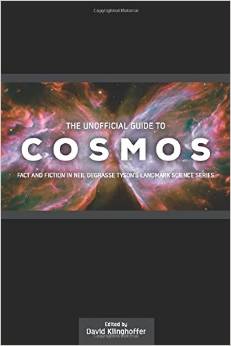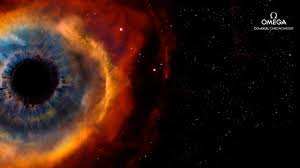A Review of The Unofficial Guide to Cosmos: Fact and Fiction in Neil deGrasse Tyson’s Landmark Science Series
 Douglas Ell became an atheist as a youth because of misinformation handed down in the name of science. It took him thirty years “to climb out of the atheist hole.” Sadly, Cosmos: A Spacetime Odyssey, the 2014 series brought to you by Neil deGrasse Tyson, Family Guy’s Seth MacFarlane, and a host of like-minded celebrity atheists, served up thirteen dazzling episodes containing similar misinformation. The series mixed, quoting Jay W. Richards, “one part illuminating discussion of scientific discoveries, one part fanciful, highly speculative narrative, and one part rigid ideology disguised as the assured results of scientific research.”
Douglas Ell became an atheist as a youth because of misinformation handed down in the name of science. It took him thirty years “to climb out of the atheist hole.” Sadly, Cosmos: A Spacetime Odyssey, the 2014 series brought to you by Neil deGrasse Tyson, Family Guy’s Seth MacFarlane, and a host of like-minded celebrity atheists, served up thirteen dazzling episodes containing similar misinformation. The series mixed, quoting Jay W. Richards, “one part illuminating discussion of scientific discoveries, one part fanciful, highly speculative narrative, and one part rigid ideology disguised as the assured results of scientific research.”
If you like science, science done well that is, you’ll find invaluable help making sense out of Cosmos with The Unofficial Guide to Cosmos: Fact and Fiction in Neil deGrasse Tyson’s Landmark Science Series, an easily readable volume co-authored by Ell, Richards, David Klinghoffer, and Casey Luskin. The Unofficial Guide to Cosmos sorts out, episode by episode, the legitimate science from the liberal doses of materialist philosophy, revised history, and brazen ideology the makers of the series have carelessly (or intentionally?) stirred into the mix. Here’s a sampling:
Materialist Philosophy. Without acknowledging it, Cosmos presupposes a priori the materialist worldview. This should come no surprise. But the makers deceive themselves if they think they’ve dispensed with the religious. Scientific thought, according to Tyson, is the “light” that has “set us free.” And discovering our “long lost cousins” (organisms with similar DNA sequences) can be a “spiritual experience.”
Science History: With respect to history, there are errors of commission, a deceptive retelling of the Giordano Bruno affair, for example, clearly designed to paint Christianity as a mortal enemy of science. And there are errors of omission, such as the utter desacralization of many revered fathers of science (Newton, Faraday, Maxwell, and more) who were men of open Christian piety.
Ideology. In later episodes, Tyson lectures viewers about a dire need to save the planet and casts climate dissenters, who are “in the grip of denial,” as either ignorant or evil – this against a backdrop of cheering Nazis, to round out the propaganda package.
An especially insidious error of omission involves the makers’ failure to even hint that a vigorous debate rages today among scientists. “Cosmos has done a wonderful job of recalling how old mistaken ideas were overturned—ideas about geocentrism, stellar composition, continental drift … and more,” writes Luskin. “However, these are all tales from the annals of scientific history. Cosmos presents current scientific thinking as if it were all correct, with everything figured out. … Tyson never discusses evidence that challenges the prevailing evolutionary view.” This is inexcusable.
Even scientists sympathetic to the makers’ agenda have pointed out serious flaws. “Cosmos is a fantastic artifact of scientific myth making,” wrote science historian Joseph Martin of Michigan State University. Yet, he defends the series including the myth making. Why? Luskin parses Martin’s defense: Because Martin thinks it’s permissible to lie if the lie helps “promote greater public trust in science.” Martin calls this kind of useful lie a “taradiddle.”
Luskin furthermore puts his finger on the million-dollar question the thinking public should be asking: If the science academy is condoning telling us ‘taradiddles’ to curry our trust in science, why should we blindly trust them when they claim that only their “science” can explain the origin of life and the cosmos?
It’s a good question. Indeed. Why?
This article first appeared in Salvo 32, Spring 2015

Why should we trust scientists? Indeed, we should not! Science is all about questioning and checking, and investigating further, and checking again. If you think of scientists as some kind of authority that you’re supposed to trust, then you’ve missed the essential point.